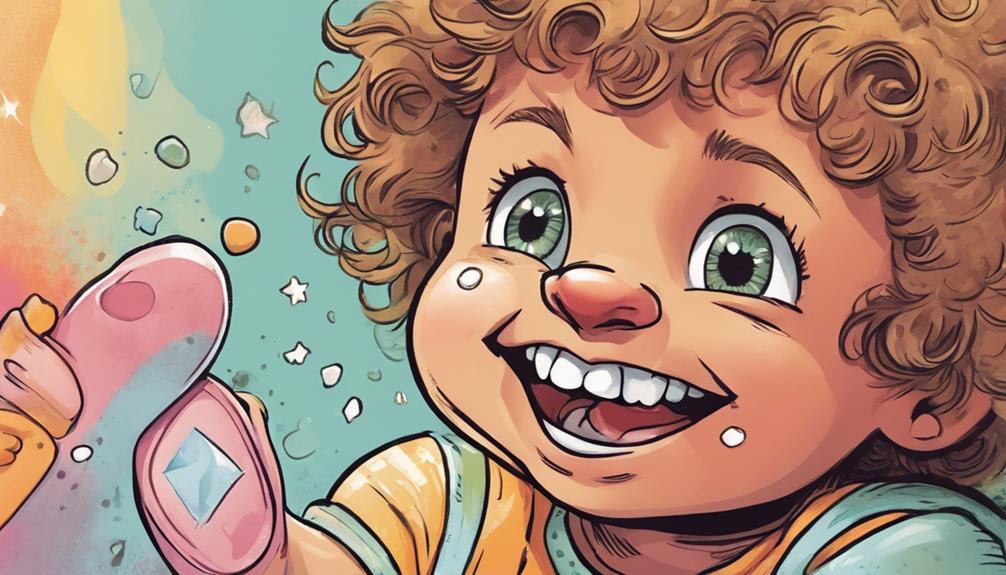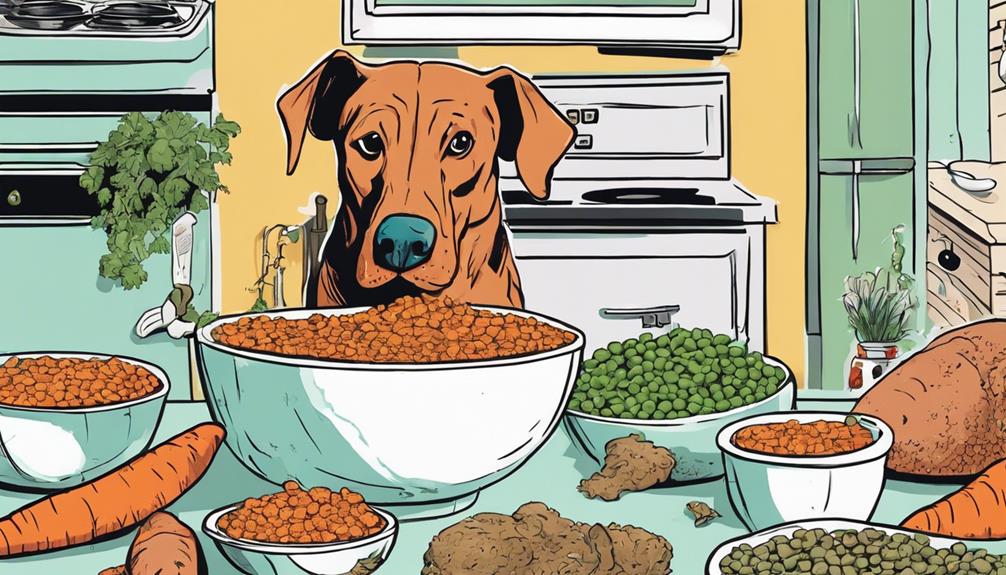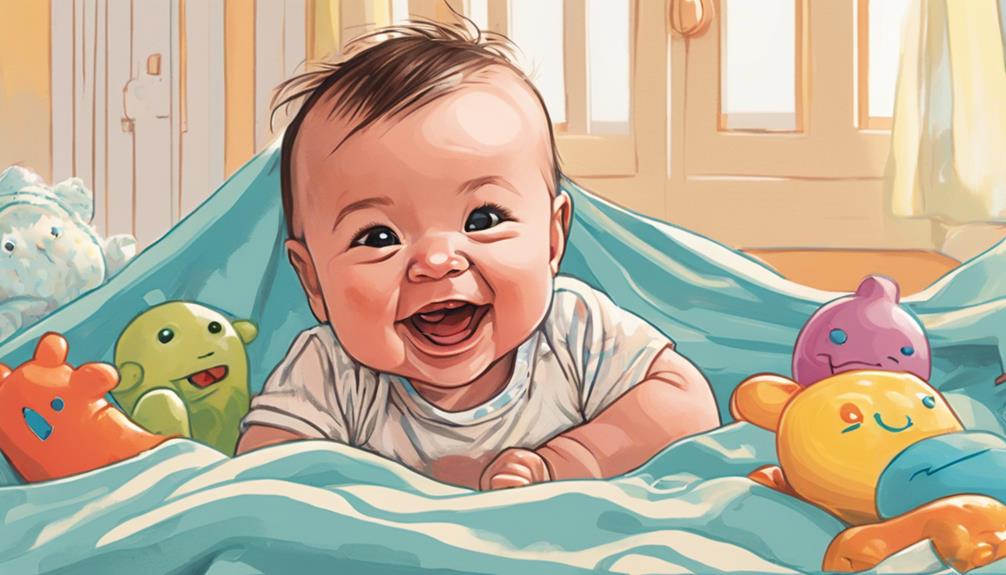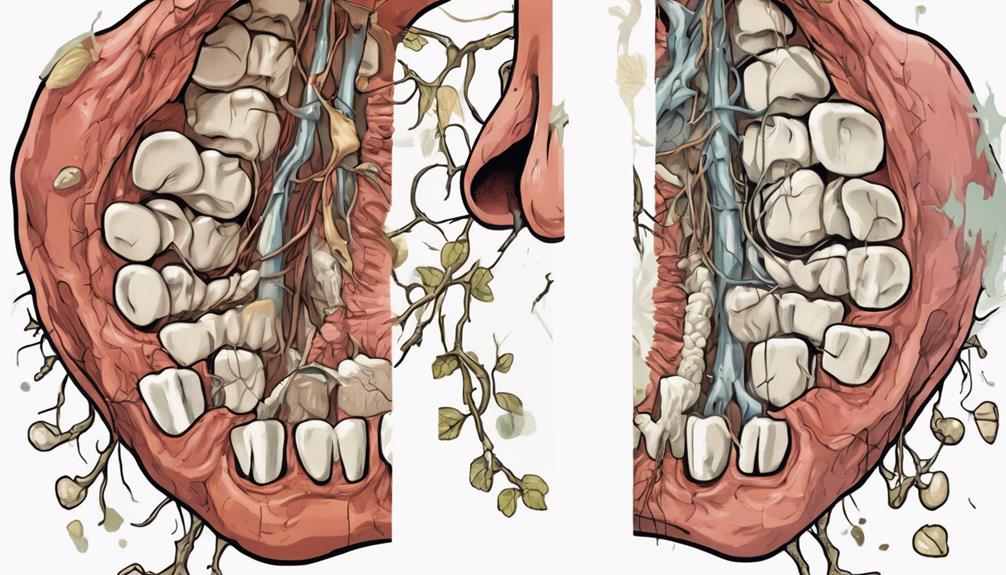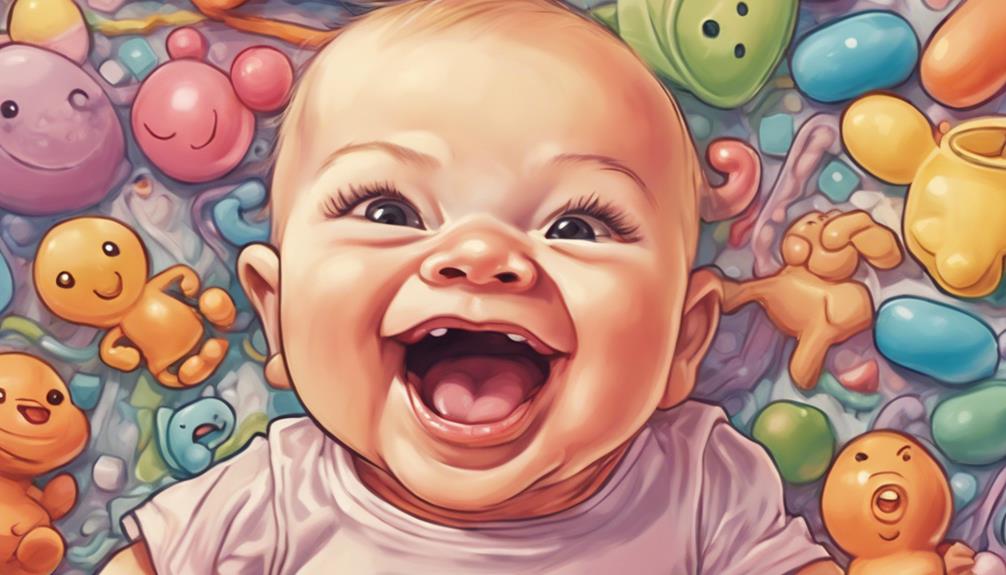Baby teeth, or primary teeth, start to fall out around age six. The first ones you'll notice are the lower central incisors. Next, the upper central incisors follow, and then come the lateral incisors. After that, the first molars are lost, with canines and second molars being the last to go by around age twelve. These teeth are important for developing speech, chewing, and proper alignment for permanent teeth. If you're curious about how to manage loose teeth or the significance of dental check-ups, there's more to discover about this vital phase of dental development.
Key Takeaways
- Baby teeth, also known as primary teeth, typically start falling out around age 6.
- The first teeth to fall out are the lower central incisors, followed by the upper central incisors.
- Next, the lateral incisors are lost, followed by the first molars.
- Canines and second molars are the last baby teeth to fall out, usually by age 12.
Order of Baby Teeth Loss
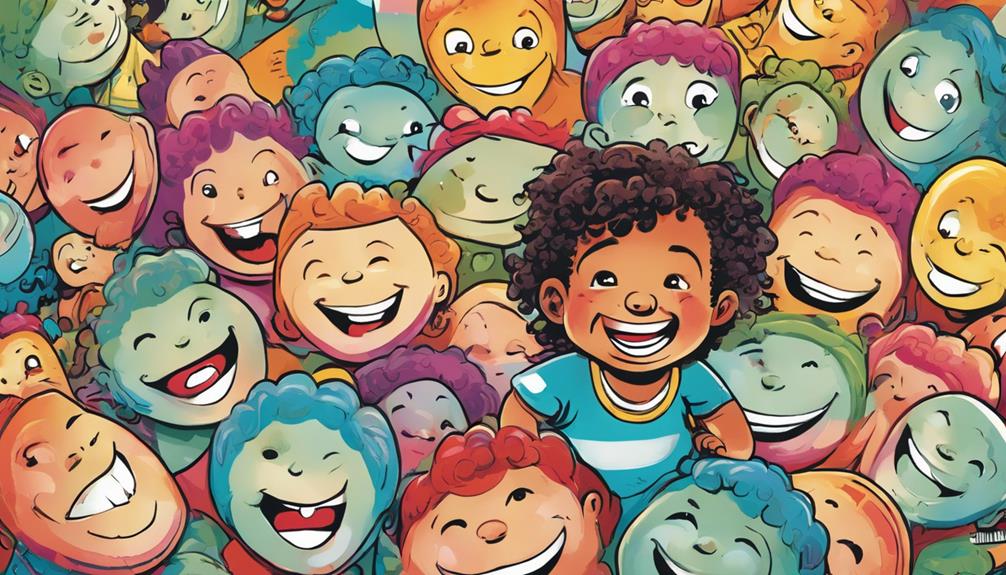
Kids usually start losing their baby teeth around age 6, and they do so in the same order those teeth came in. The first ones to fall out are typically the lower central incisors, which are the two bottom front teeth. The process of losing baby teeth typically continues until around the age of 12. This aligns with the general teething timeline for babies, as children typically have all of their adult teeth by this age. Understanding the typical order and timing of baby teeth falling out can help parents and caregivers prepare for the teething timeline for babies and ensure that children receive proper dental care during this transition.
You might find it exciting when your child loses these teeth as they pave the way for their permanent set. After the lower central incisors, the upper central incisors, or the two top front teeth, follow suit.
Once those are gone, the order of loss continues with the lateral incisors, which are next in line. Then, your child will lose their first molars, followed by the canines. Finally, the second molars are the last primary teeth to fall out.
By around age 12, most kids have lost all their baby teeth, completing the shift to permanent teeth. This systematic order of loss helps guarantee that your child's mouth has enough space for their adult teeth, making the process smoother and easier overall.
Knowing this order can help you prepare for the changes your child will experience during this important developmental stage.
Importance of Baby Teeth
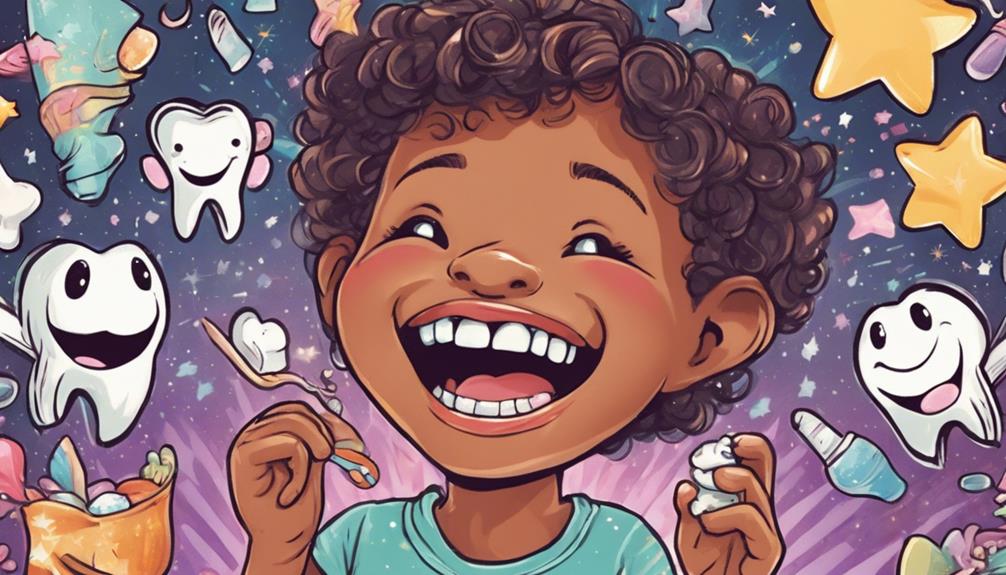
Baby teeth are important for your child's speech development, proper nutrition, and the overall alignment of their permanent teeth. These primary teeth help kids articulate sounds and words, which is essential for effective communication. When children have healthy baby teeth, they can chew their food properly, guaranteeing they receive the necessary nutrition for growth and development.
Moreover, baby teeth act as placeholders for permanent teeth. They guide the adult teeth into their correct positions, preventing future alignment issues. If baby teeth are lost too early or are in poor condition, it can lead to complications with the alignment of permanent teeth, ultimately affecting oral health.
Maintaining baby teeth until they naturally fall out is crucial for your child's overall facial structure as well. These teeth contribute to a balanced appearance, which can influence self-esteem and social interactions.
Common Dental Issues
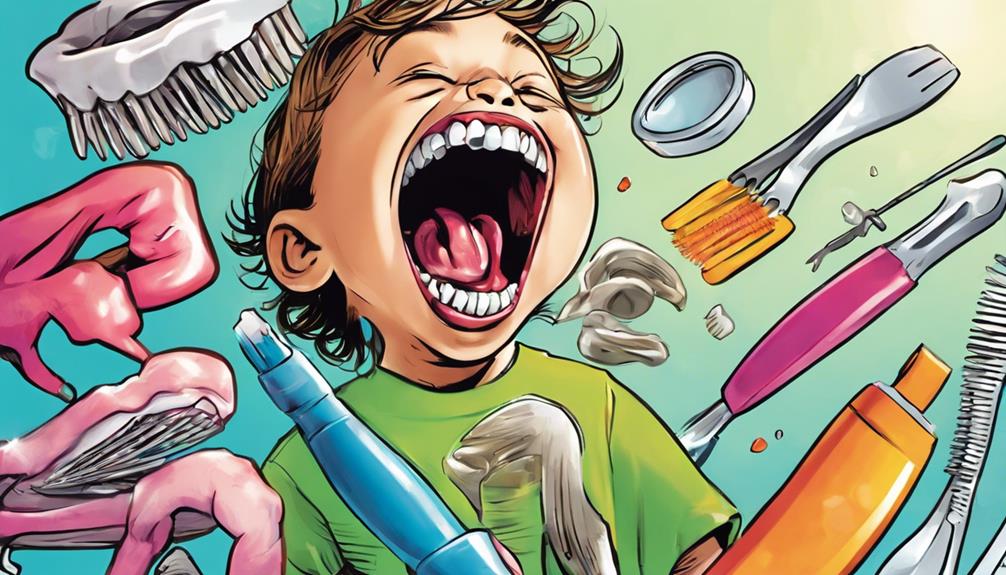
Many children experience common dental issues that can impact their oral health and the development of their teeth.
Cavities are one of the most prevalent problems, often resulting from high sugar diets. These cavities can lead to early loss of baby teeth, causing alignment problems for permanent teeth. Early tooth loss may result in overcrowding or gaps when the adult teeth come in.
Additionally, dental anxiety can hinder regular dental visits, making it harder for you to address these issues promptly. Thumb sucking is another common behavior that can negatively affect the alignment of baby teeth, potentially impacting the development of adult teeth as well.
Maintaining good oral hygiene is essential; poor practices can lead to gingivitis, compromising the health of baby teeth. If left unchecked, poor hygiene can result in tooth decay, further exacerbating dental issues.
Managing Loose Teeth
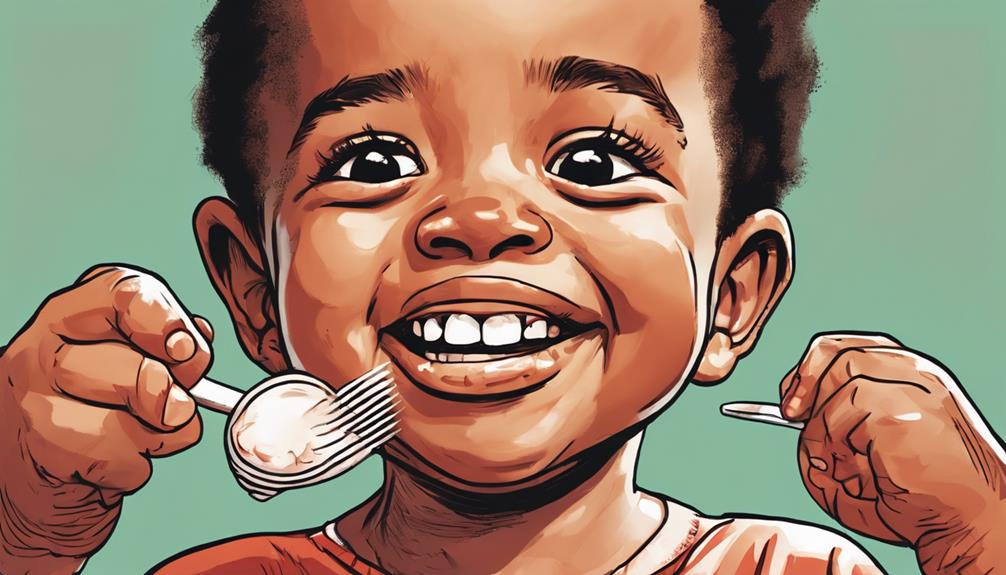
Around ages 5 to 7, you'll notice your child's teeth starting to feel loose as they prepare for the arrival of permanent ones. Managing this change is essential for both you and your child. It's vital to explain the tooth loss process to alleviate any fears they might've about losing their baby teeth.
Here are some tips to help you manage loose teeth effectively:
- Encourage oral hygiene: Remind your child to keep brushing, even the loose teeth, to maintain good oral hygiene during this time.
- Wiggle gently: You can help your child wiggle the loose tooth with a clean finger, but avoid pulling unless there's significant pain.
As a parent, your support during this change is invaluable. Keeping the lines of communication open helps your child feel secure about the changes occurring in their mouth.
Together, you can make this experience a positive one, paving the way for healthy permanent teeth to come in.
Importance of Dental Check-ups
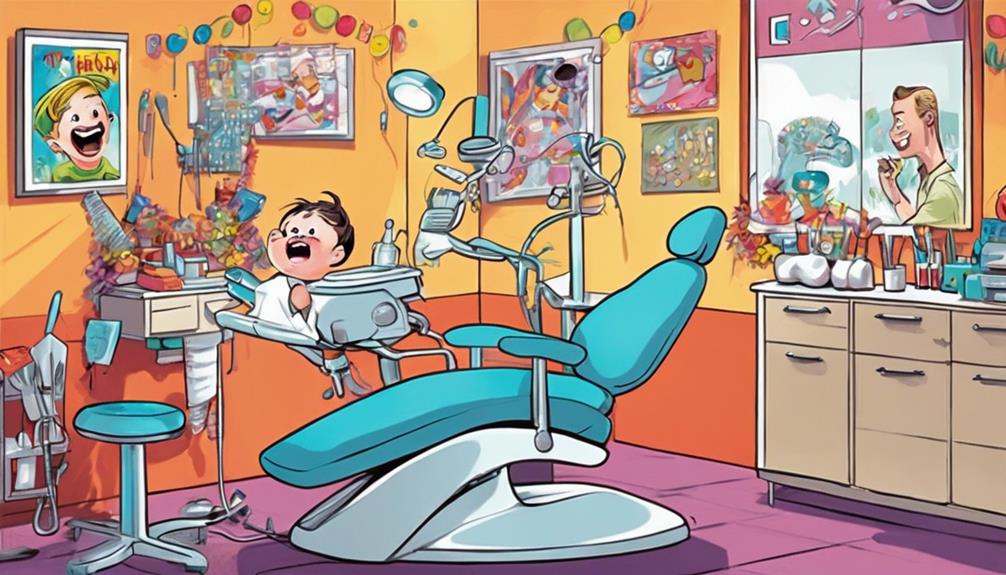
Regular dental check-ups play an essential role in guaranteeing your child's teeth develop properly and any potential issues are caught early. Starting dental visits around age one helps monitor the development of baby teeth, allowing pediatric dentists to identify concerns before they escalate.
By age seven, it's vital to assess the emergence of adult teeth and check for bite problems or crowding that could lead to misalignment. During these check-ups, dentists may use X-rays to visualize underlying permanent teeth and spot any developmental concerns. Early intervention is key in addressing complications like delayed tooth loss or misalignment, which can impact your child's oral hygiene and overall health.
Pediatric dentists provide valuable guidance on maintaining good oral hygiene, helping you guarantee a smooth shift from baby teeth to permanent teeth. Regular check-ups not only promote healthy dental habits but also prevent potential issues that could lead to more extensive treatments later.
Prioritizing these visits can help set your child up for a lifetime of strong, healthy teeth. Don't wait—schedule that appointment today to keep your child's smile shining bright!
Frequently Asked Questions
How Many Teeth Are Baby Teeth That Fall Out?
You'll find that children typically have 20 baby teeth. These teeth start falling out around age 6, making way for permanent teeth. Each lost tooth plays a vital role in developing your child's smile.
Which Teeth Fall Out and Which Don't?
Did you know that kids typically lose all 20 baby teeth between ages 6 and 12? The first to fall out are the lower central incisors, while molars and canines remain until later. It’s important to take good care of baby teeth as they serve several important functions, including helping children chew properly, speak clearly, and hold space for permanent teeth. Neglecting the importance of primary teeth can lead to issues with jaw development and alignment as well as potential problems with the eruption of adult teeth. Therefore, it is crucial for parents to teach their children good oral hygiene habits from a young age to ensure the health and longevity of their primary and permanent teeth.
Which Baby Teeth Should Fall Out?
When it comes to baby teeth, you should expect the lower central incisors to fall out first, followed by the upper central incisors, lateral incisors, first molars, canines, and finally, second molars.
What Teeth Come Out as Baby Teeth?
You're in for a wild ride when baby teeth erupt! You'll have 20 little wonders, including incisors, canines, and molars, all ready to help you munch through childhood adventures before they eventually start falling out.
Conclusion
So, while you might think losing baby teeth is just a rite of passage, it's actually a reminder that even your little ones' smiles have a big impact on their future dental health.
Ironically, these tiny teeth, which are so easily dismissed, play a vital role in shaping adult teeth and ensuring proper alignment.
Keep an eye on those wigglers, and don't forget—just because they're temporary doesn't mean they don't deserve a little TLC!
